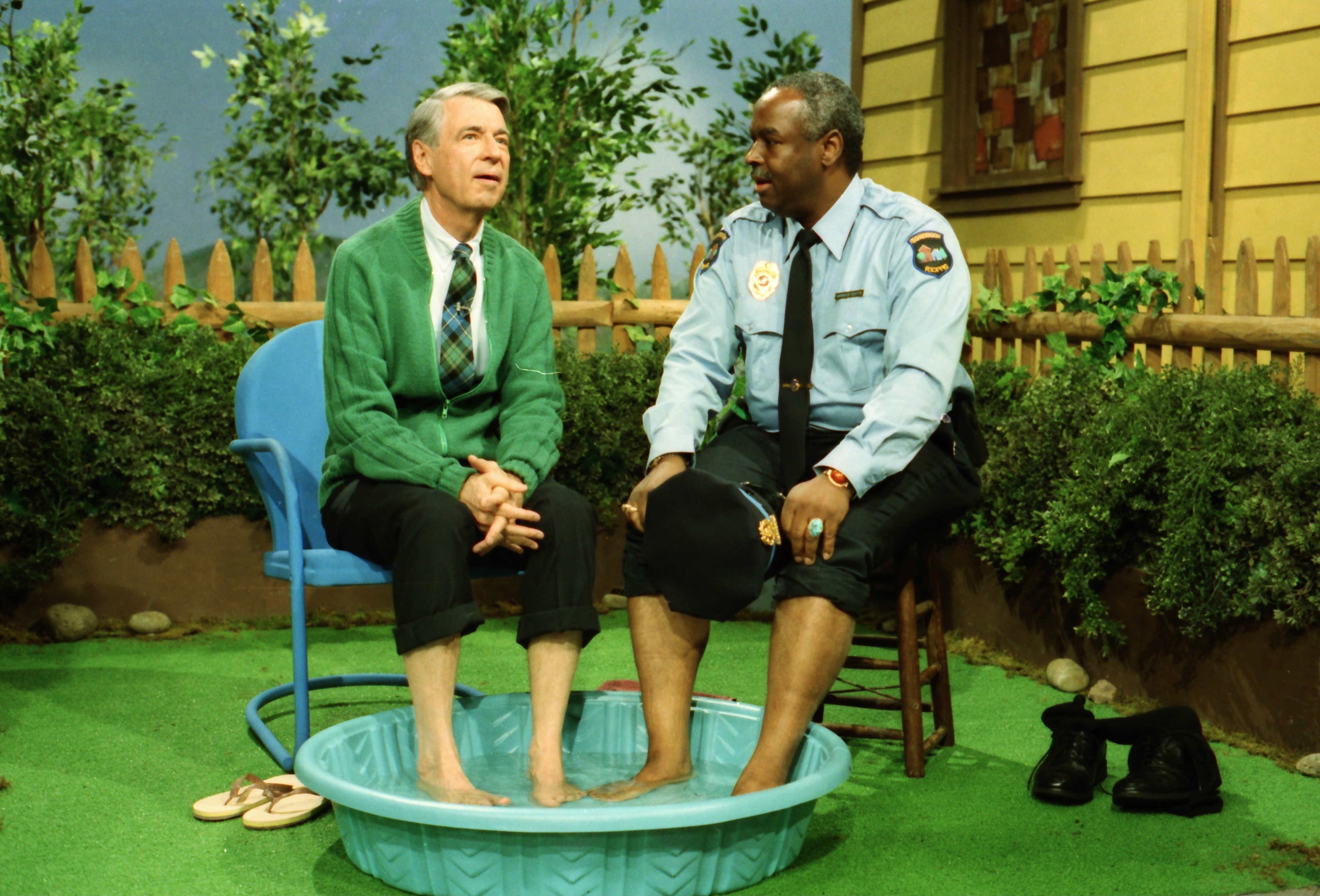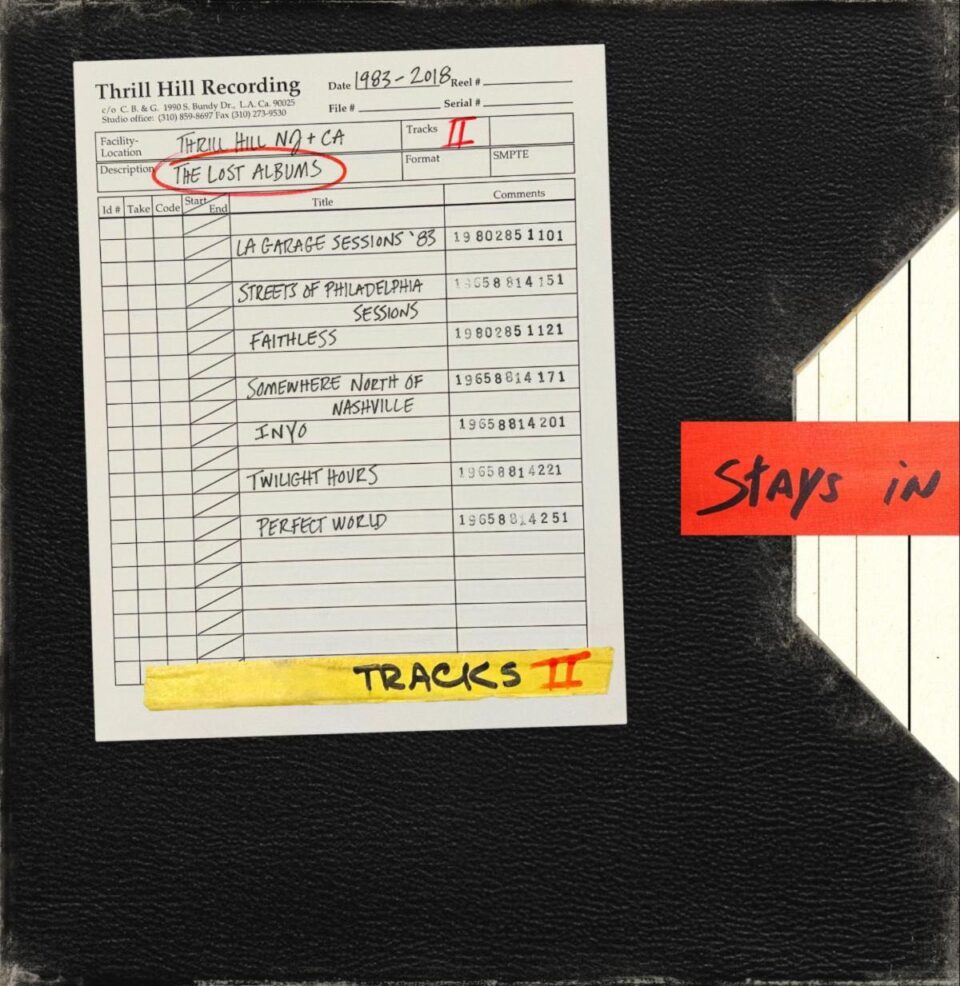After a year in which all of the most horrific images we saw were from news broadcasts, suddenly there’s no longer any interest in the revival of punk rock and politically charged rap we were promised heading into 2016. Subtlety is a dead art, it seems, and what we really need is a break from the overwhelming information we’re absorbing minute-by-minute. It’s no wonder figures like Joe Pera have emerged to talk us out of our lives and into an ASMR-like reverie somehow energized by minerals and sheet music—we’re so jaded by the vulgarity and irony of everyday life that sometimes it feels like safe spaces are the only ones worth seeking out in media.
As a quick recap of such wholesome media, here are ten cultural moments from 2018 that felt irreverently earnest while, in one way or another, remaining very much a sign of the times.
the four absolute units of the apocalypse pic.twitter.com/oXT4kZZZyg
— felix fall (@70GB) May 7, 2018
The Absolute Unit meme
If you’re a person who is online in the year 2018, you understand the ineffable power of the meme—a simple fill-in-the-blank exercise in simile which derives most of its humor simply from our ability to situate relatable information onto a familiar template. Unfortunately, these formats are often human people, and even if they’re not actually the butt of the joke, we’re still kind of laughing at them. And then came the Absolute Unit, the body-positive caption for our severely over-fed pets. Much as how most Internet humor has evolved from the archaic format of AFV footage, the meme rejects the snide Bergeronian voiceover in favor of something vaguely deferential—as if these were creatures who’ve shown any sign of shame anyway.
American Pleasure Club, A Whole Fucking Lifetime of This
As someone who’s released eight years’ worth of music under the moniker Teen Suicide, the title of Sam Ray’s latest album may have been misleading. Instead of the collection of somber lo-fi recordings his band used to churn out, his first official record as the unironically named American Pleasure Club is a relaxed and impossibly blissed out experiment in everything from R&B to jungle. The titular “this,” of course, is his recent marriage to the equally online musician Kitty (née Pryde), inspiring a married-life ease with which hazy cuts like “Sycamore” seep out, and earnest song titles like “This Is Heaven & I’d Die for It” and “Let’s Move to the Desert” provide emotional peaks. A Whole Fucking Lifetime of This is far from a life sentence—it’s an incomparable blessing.
https://www.youtube.com/watch?v=ynlhQo1kLWg
Andrew W.K.
When Andrew W.K. burst onto the scene in the early aughts, his heavy rock music, blood-and-pizza imagery, and lyrics almost exclusively about partying may have given people the wrong impression. Sure, the guy clearly loves to party—but what exactly is a party? As W.K. spends more time in the public consciousness, it’s becoming increasingly evident that partying, for him, is synonymous with living, and his intense personality is primarily fuelled by a bottomless pool of empathy. 2018 not only saw the release of the musician’s most life-affirming record to date, You’re Not Alone, but also began with W.K. being named the American Association of Suicidology’s Person of the Year. His music is the perfect soundtrack to pounding a few cold ones with the boys while engaging in a Madden 2003 tournament—or a night of amped-up introspection and self care.
Click here to read our feature on Andrew W.K.
https://www.youtube.com/watch?v=YT-DF6KGTcI
Big Boi’s owls
Ever since OutKast went AWOL over a decade ago, both members of the rap duo have remained pretty elusive. With the exception of his somewhat consistent solo material, Big Boi has popped up in some pretty surprising places over the years—most recently on Twitter and Instagram, as videos of his pet owls Hootie and Hoodini populate our feeds (absolute units neither; big bois both). A far cry from the pitbulls and rottweilers we typically associate with prominent figures in rap (Big Boi is a French bulldog man himself), the videos are refreshingly tranquil—though sometimes deeply unsettling—and his affection for the extremely weird birds (“Flex on them hoes!”) kind of endearing.
Culture Abuse, “Bee Kind to the Bugs”
Hailing from the Bay Area’s hardcore scene, Culture Abuse has never quite comfortably fit the Epitaph-signee profile. Their debut record, Peach, sounds like a collection of punk-goes-pop covers with vocalist David Kelling reverently trying on a karaoke singing voice in lieu of any harsher alternatives. Bay Dream, the band’s sun-soaked follow-up, removes them further from their abrasive peer group and situates them instead in the underpopulated lineage of Astro Lounge. The karmically charged “Bee Kind to the Bugs” is the peaceful mantra the rest of the record revolves around, its utterly discernible lyrics providing a series of self-help tips on maintaining human relationships and limiting drug consumption. While Culture Abuse still gets reeeally rowdy onstage, “Bee Kind” betrays the band’s soft center instead of the repetitive, potent layers their ogre-ish performances may project.
Eighth Grade
For some reason, the horrific reality of middle school always gets played down in TV shows and films about preteens looking to fit in. Outside of the Linklater universe, which firmly establishes the suck as an unnecessary evil, these years always seem devoted to trivial matters beyond a cripplingly panicked self-perception, which obstruct the questionably resolutory graduation day. Yet in presenting eighth grade in all of its awkward playdates and epidermal blemishes—with the additional modern terrors of school shooting drills and social media faux pas—the ultimate feeling of acceptance Eighth Grade’s thirteen-year-old protagonist achieves feels all the more deserved. The Hollywood ending in which she befriends a group of high schoolers occurs way before the credits roll, preceding her realization that no eighth grader is as mature as they pretend to be—and that all her social life really needs is a chicken nugget dinner with a non-threatening boy every once in a while.
IDLES, “Danny Nedelko”
Danny Nedelko is the snarling lead vocalist of the Bristol post-punk group Heavy Lungs. He’s also a Ukrainian immigrant and the subject of an impossibly catchy pub rock track by his peers IDLES, which is accompanied by a video of the extremely photogenic Nedelko posing with a succession of fellow immigrants and flashing an “OK” sign. The track itself is unbelievably fun, melding emotive punk with a barroom sing-a-long chorus denouncing their country’s fear-based white supremacy. The video, though, is simply a series of playful scenes of immigrant interminglings sharply contrasting with the horrific image and vampiric paranoia the Fox Newses of the world insist on poisoning the public conscious with. As this video proves, these people are capable of having fun—or at the very least willing to put up with Nedelko’s antics.
Click here to read our feature on IDLES.
Moonface, “Minotaur Forgiving Theseus”
A recurring theme in the past few years of politics has been the steady emergence of new characters who are so unambiguously evil that they’ll never earn the forgiveness of a considerable faction of the country their policies are being inflicted upon. This may or may not have been the concept Moonface (a.k.a. Spencer Krug) was working with when he penned an album-length collection of songs about the Minotaur forgiving everyone who orchestrated his lonely existence trapped in a maze and forced to murder a human every time he needed to eat. While it’s one thing to forgive the man who built the labyrinth, it’s something else entirely to forgive the man who snuck a blade into his home to decapitate the Minotaur. “You can walk on the bones of the innocent,” Krug’s Minotaur invites as the killer enters his maze, focusing his blame more broadly on a corrupt system. “You’re just a hitman, but I forgive you.”
Click here to read our feature on Moonface.
P F / Dad Reacts
As everyone’s scrambling to make it big on the new frontier of Video Content™, YouTuber Ruari has painlessly carved out a niche for himself as the only eleven-year-old music journalist to conduct an interview with chaotic-evil SoundCloud rapper JPEGMAFIA. Most famous for his Dad Reacts videos—a series of reactions to new rap tracks with the input of his somewhat cagey (though punk-literate) father—the vlogger offers a unique look under the roof of America’s white Middle Class embracing its country’s cultural change without hesitation or appropriation. It’s also a much needed respite from the preteens covered in Red Bull and Bud Lite passed out at the Post Malone show.
Won’t You Be My Neighbor?
As the godfather of wholesome content, it makes sense that 2018 was the posthumous year of Mr. Rogers. As Tom Hanks slips on his proto-Vans for Marielle Heller’s 2019 biopic, audiences are still recovering from the emotional toll of spending ninety minutes in a theater with Fred Rogers’ inhumanly soothing voice and punk rock disregard for crass TV convention, not to mention the distinct memory of sitting in a dark room with dozens of shamelessly sobbing moviegoers. As clips from his program talk us through national tragedies and personal conflicts, the most heartbreaking realization you’re sure to come away with is that so much more of our content should have been this wholesome all along. FL









